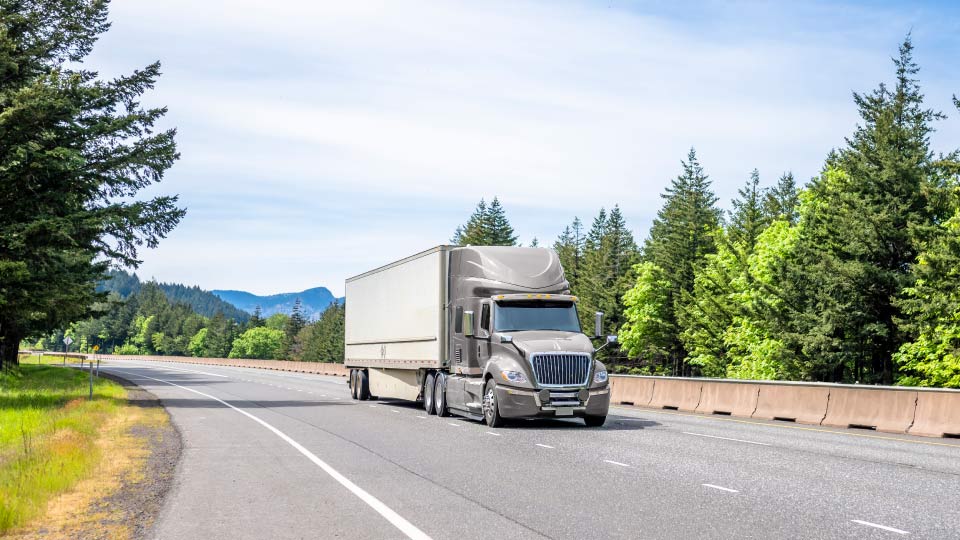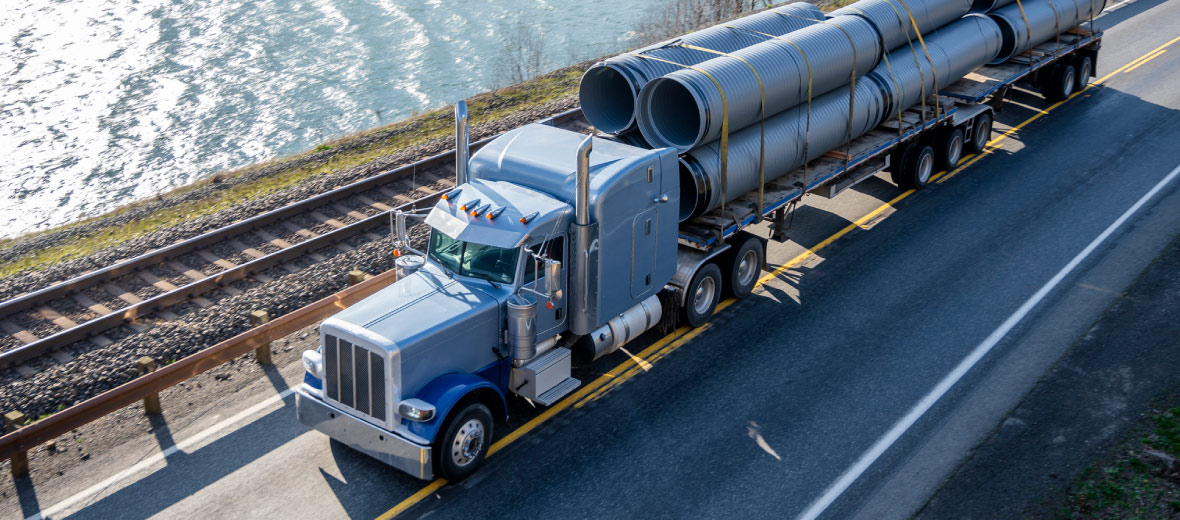Transport Canada ELD mandate: Certified Canadian ELD solutions by Geotab
Geotab’s range of Electronic Logging Device (ELD) hardware and software is compliant for use in Canada.

Published: Jul 21, 2022
•3 minute read
.jpg)
Geotab's ELD solutions meet the stringent requirements of the Transport Canada ELD mandate. Our compliant devices in Canada include the Geotab GO7, GO8, GO9 and GO9+ ELDs, as well as the Geotab Drive mobile app for both Android and iOS devices.
Learn more about the Canadian ELD mandate and how it governs commercial truck and bus operations.

What is the Canadian ELD mandate?
The Canadian ELD mandate, also known as the electronic logbook law, is a federal law. It requires all qualifying commercial motor vehicle drivers to use their electronic logging device to record hours of service (HOS) and records of duty status (RODS).
The ELD mandate (sometimes referred to as the elogs mandate) states that drivers of commercial motor vehicles must use ELDs. This technology has been mandatory in the U.S. since December 18, 2017.
Canadian ELD mandate enforcement date
The enforcement of the Canadian ELD mandate came into effect on June 12, 2021. A progressive enforcement strategy was initially planned to end by June 2022. However, to provide adequate preparation time for the industry, provinces and territories, full enforcement has been extended to January 1, 2023. Penalties for non-compliance have commenced from this date.
Third-party certification of ELDs in Canada

In Canada, ELDs cannot be self-certified, they must be certified by a third-party. To achieve certification, ELD manufacturers must meet the requirements of the Technical Standard for Electronic Logging Devices published by the Canadian Council of Motor Transport Administrators (CCMTA). Geotab Drive mobile app, along with our current GO device offerings, have now successfully completed the Canadian ELD certification process through CSA Group, an accredited third-party certification body for Transport Compliance.
Where to find the Transport Canada ELD certification list
The Canadian government posts notifications on third-party certified ELDs on their website. This independent verification is a key differentiator to the U.S. process, where ELD manufacturers can self-certify their devices.
Important Canadian ELD mandate dates

Here is a quick overview of key dates to be aware of with regard to the Canadian ELD mandate.
Transport Canada ELD timeline
December 16, 2017
The Government of Canada published the proposed Regulations Amending the Commercial Vehicle Drivers Hours of Service Regulations, in Canada Gazette Part I, , initiating the formal regulatory process for the Canadian ELD mandate.
June 13, 2019
Transport Canada announced the official ELD mandate rules published in the Canadian Gazette Part II, setting the legal framework for the use of ELDs for commercial trucks and bus operators.
June 12, 2022
Originally set as the enforcement deadline, this date marked when carriers were expected to complete the transition from paper daily logs to ELDs, aiming for full compliance ahead of the extended enforcement period.
January 1, 2023
This marks the extended enforcement deadline when penalties for not adhering to the federal regulations for ELD usage began to be strictly applied across Canada, finalizing the progressive enforcement phase.
Understanding the Transport Canada ELD mandate
Watch this video to better understand the Canada ELD mandate and learn about:
- Background and timeline
- Key differences between the U.S. and Canadian legislation
- How to prepare
Comparing Canadian and U.S. ELD regulations
The Canadian ELD regulations closely mirror the current U.S. rules on electronic logging, that were implemented in December 2017. In both Canada and the U.S., ELDs must:
- Synchronize with the engine
- Provide GPS tracking
- Automatically capture drive time
- Use an on-screen display to show inspectors at roadside
- Allow drivers to select special driving statuses such as Yard Move (YM) and Personal Conveyance (PC).
- Incorporate a mechanism to verify logs and agree to edits
Also, vehicles manufactured before 2000 are exempt from these mandates in both countries.
Note: This is not a complete list.
Key differences between Canadian and U.S. ELD mandates
While similar in many respects, there are some differences in how ELDs are regulated in Canada compared to the U.S.:
- Third-party certification – In Canada, ELDs must undergo third-party certification to ensure they meet specific standards. In the U.S. however, manufacturers are allowed to self-certify their devices, which are then registered with the Federal Motor Carrier Safety Administration (FMCSA). The Canadian Trucking Alliance has strongly supported this measure, stating that it will help strengthen overall compliance and discourage device tampering.
- Data transfer methods – Canadian drivers do not use an electronic system like the U.S. eRODS for log transfers. Instead, they are required to email log files to enforcement officers, who may use specialized software to read the files. Details on this process are still evolving.
- Compliance requirements – All Canadian ELDs must meet the Technical Standard for Electronic Logging Devices standards set by the Canadian Council of Motor Transport Administrators (CCMTA).
Learn more about Transport and FMCSA Compliance Software.
Next steps
The Canadian ELD regulations will not change existing hours of service (HOS) regulations, but reinforce compliance. Additional benefits of the rule include reducing fatigued driving and simplifying compliance for long-haul truck drivers who drive in both countries.
Find the right ELD solution for Canada
The Canadian ELD Mandate require that ELD system actively warn drivers as they approach HOS limits. Given that Canadian HOS rules differ slightly from those in the U.S., carriers should look at choosing an ELD vendor that:
- Supports the Canadian HOS rules, including deferral of OFF duty time.
- Is committed to achieving third-party certification when it becomes available.
Geotab already has a Canadian ruleset available for the Geotab ELD solution and is certified to the new Canadian ELD regulations.
To learn how to simplify compliance and improve safety with Geotab, visit our ELD solutions page and book a demo to get started.
While Geotab recognizes our place as a self-registered ELD manufacturer and provider and we will answer questions regarding those Hours of Service (HOS) ruleset options we provide, neither Geotab nor any of its employees, officers or agents can offer legal advice to any resellers or customers concerning which HOS ruleset(s) or exemption(s) may apply to any particular situation. Please contact your local DOT department or refer to the FMCSA website at https://www.fmcsa.dot.gov/ for questions Geotab is unable to answer.
Originally published Mar 5, 2017.
Subscribe to get industry tips and insights
Updated: Jan 16, 2025

Kyle Dodsworth works on empowering audiences to meet their goals via enhanced learning experiences.
Table of Contents
- What is the Canadian ELD mandate?
- Canadian ELD mandate enforcement date
- Third-party certification of ELDs in Canada
- Important Canadian ELD mandate dates
- Understanding the Transport Canada ELD mandate
- Comparing Canadian and U.S. ELD regulations
- Key differences between Canadian and U.S. ELD mandates
- Next steps
Subscribe to get industry tips and insights
Related posts


Trucking logistics: What is it + how it works (benefits guide)
January 17, 2025
5 minute read

FIPS 140-3 validation: What it is and what it means for Geotab customers
December 18, 2024
2 minute read


Top 7 Transportation Management Systems (TMS) Software
December 5, 2024
7 minute read

55+ trucking industry statistics: trends + outlook [2024]
September 3, 2024
5 minute read